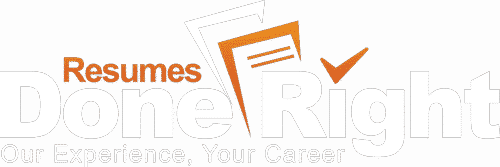Congratulations! You’re finally up for that promotion, but before you polish off your new nameplate for your corner office you must go through the dreaded internal interview. In theory, an internal interview should be the same as any ol’ interview, however, in practice, it seems many workers clam up or get more nervous by being interviewed by colleagues than strangers. Here are some simple but effective tips to help you knock your next internal interview out of the park!
1. Pretend you do not know your interviewer nor the company they work for.
While you may have a leg up by knowing the people on the interview panel compared to outside candidates, one of the biggest pitfalls interviewees fall into is not providing enough information in their answers because they know the interviewers are aware of the job they already perform. This is a fatal error! Most companies will have an interview rubric to grade your answers on and if you fail to meet the keywords and knowledge outlined on that rubric, you could miss your chance at a new title. For those who are unfamiliar with rubrics, imagine if bingo and a scale from 1-4 had a baby. Rubrics are specific grading systems that describe the expectations of the interview, including how complete your answers are and what terms and concepts you’re familiar with. The goal is to score as high on each item on the rubric as possible throughout your interview. This is why your interviewers take notes. How do you do this? By pretending that you’re going into a new place with people you’ve never met before. Completing your interview in this manner will ensure that you provide all the necessary information in your answers and will give you that extra push to make your best second impression. Additionally, if you’re interviewing outside of your department, do some research and find out what that department’s goals, culture, and mandate are! It may be the same company, but every area runs like its own well-oiled machine, and you want to appear valuable and knowledgeable. The best way to appear as both is to know the inner workings of the department so you can be sure to show them just how well you’ll fit in and help them achieve their corporate goals.
2. Prepare, prepare, prepare!
Did I mention you should prepare? Just like in tip 1, you need to prepare for your interview the same way you would any other. This means reading the job description, reviewing your resume, preparing questions, and picking out an outfit that screams “promote me!” You can never be over-prepared for an interview so go that extra mile to secure your success. One of the best ways you can prepare is by completing mock interviews with someone you trust to give you good, honest feedback and advice. When you practice your answers ahead of time, they will come more quickly to you in your interview, and you will be able to project more confidence. You can also tweak your answers to include elements you may have forgotten the first time you answered the question in your mock interview and those small changes can make a big difference! Other preparations to consider include if you’re disclosing your interview to any colleagues or management staff. Generally speaking, it is no one’s business which job you’re applying for, however, in certain cases, it could be a courtesy to advise your supervisor or a colleague. If you feel comfortable disclosing this information, feel free to, but you are not obligated to and if you’re concerned about any reprisals from your department, reach out to HR first and ask them the best way to proceed.
3. Remember STAR.
Okay, this is technically tip 2.5 because part of your interview prep should absolutely be the STAR method. Not familiar with this technique? Check out our full post here. Still uncertain or feeling insecure about how to use STAR? Book a consultation with our Career Consultant, Melissa , to get all your questions answered! Once you’re familiar with STAR, the best way to implement it is to be aware of what the hiring or business manager wants from the role. Review the job description and don’t be afraid to ask the person currently filling the role, or the manager themselves, what their ideal candidate will do for them. This will allow you to align your responses and goals with that of the interview panels and their rubrics. Remember: You want to focus on metrics, outcomes, and behaviours in your answers. Repeat step 2 until you feel ready for step 4.
4. Be confident!
You’ve prepared, you’ve researched, and you’ve got that power suit on. Go in, smile, and get that job!

